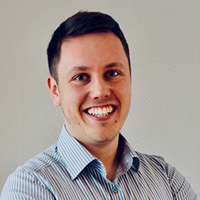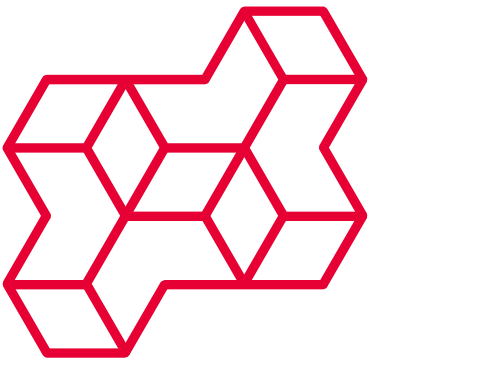Dr. Maximilian Schmidt

Maximilian Schmidt
Wissenschaftlicher Mitarbeiter
Doktorand Graduiertenkolleg π3
Team Deep Learning und Inverse Probleme
Bibliothekstraße 5
28359 Bremen
Raum: MZH 2050
Telefon: +49 421 218-63826
E-Mail: maximilian.schmidtprotect me ?!uni-bremenprotect me ?!.de
Forschungsgebiete
- Deep Learning
- Inverse Probleme
- Computertomographie
Projekte
- Graduiertenkolleg π³ - Parameter Identification – Analysis, Algorithms, Applications
- DELETO - Maschinelles Lernen bei korrelativer MR und Hochdurchsatz-NanoCT
Abschlussarbeiten
- Out of Distribution Detection for Purity Assessment of Pellets using Neural Networks, Bacherlorarbeit, Jannik Wildner, 2020
Zeitschriftenartikel
C. Arndt, A. Denker, S. Dittmer, J. Leuschner, J. Nickel, M. Schmidt.
Model-based deep learning approaches to the Helsinki Tomography Challenge 2022.
Applied Mathematics for Modern Challenges, 1(2), 2023.
DOI: 10.3934/ammc.2023007
C. Arndt, A. Denker, J. Nickel, J. Leuschner, M. Schmidt, G. Rigaud.
In Focus - hybrid deep learning approaches to the HDC2021 challenge.
Inverse Problems and Imaging, 2022.
DOI: 10.3934/ipi.2022061
R. Barbano, J. Leuschner, M. Schmidt, A. Denker, A. Hauptmann, P. Maaß, B. Jin.
An Educated Warm Start For Deep Image Prior-based Micro CT Reconstruction.
IEEE Transactions on Computational Imaging, 8:1210-1222, 2022.
DOI: 10.1109/TCI.2022.3233188
A. Denker, M. Schmidt, J. Leuschner, P. Maaß.
Conditional Invertible Neural Networks for Medical Imaging .
MDPI Journal of Imaging, Inverse Problems and Imaging 7(11), 243 S., 2021.
DOI: 10.3390/jimaging7110243
J. Leuschner, M. Schmidt, D. Otero Baguer, P. Maaß.
LoDoPaB-CT, a benchmark dataset for low-dose computed tomography reconstruction.
Scientific Data, 8(109), 2021.
DOI: 10.1038/s41597-021-00893-z
J. Leuschner, M. Schmidt, P. Ganguly, V. Andriiashen, S. Coban, A. Denker, D. Bauer, A. Hadjifaradji, K. Batenburg, B. Maass, M. von Eijnatten.
Quantitative Comparison of Deep Learning-Based Image Reconstruction Methods for Low-Dose and Sparse-Angle CT Applications.
MDPI Journal of Imaging, 7(3), 44 S., 2021.
DOI: 10.3390/jimaging7030044
online unter: https://www.mdpi.com/2313-433X/7/3/44
D. Otero Baguer, J. Leuschner, M. Schmidt.
Computed Tomography Reconstruction Using Deep Image Prior and Learned Reconstruction Methods.
Inverse Problems, 36(9), IOPscience, 2020.
DOI: https://doi.org/10.1088/1361-6420/aba415
J. Leuschner, M. Schmidt, P. Fernsel, D. Lachmund, T. Boskamp, P. Maaß.
Supervised Non-negative Matrix Factorization Methods for MALDI Imaging Applications.
Bioinformatics, bty909 , 2018.
DOI: 10.1093/bioinformatics/bty909
Preprints
T. Lütjen, F. Schönfeld, J. Leuschner, M. Schmidt, A. Wald, T. Kluth.
Learning-based approaches for reconstructions with inexact operators in nanoCTapplications.
Zur Veröffentlichung eingereicht.
online unter: https://aps.arxiv.org/abs/2307.10474
C. Etmann, M. Schmidt, J. Behrmann, T. Boskamp, L. Hauberg-Lotte, A. Peter, R. Casadonte, J. Kriegsmann, P. Maaß.
Deep Relevance Regularization: Interpretable and Robust Tumor Typing of Imaging Mass Spectrometry Data.
Zur Veröffentlichung eingereicht.
online unter: https://arxiv.org/abs/1912.05459
Tagungsbeiträge
M. Schmidt.
Around the clock - capsule networks and image transformations.
PAMM. Proceedings in Applied Mathematics and Mechanics, 20(1):e202000179, 2021.
DOI: https://doi.org/10.1002/pamm.202000179
online unter: https://onlinelibrary.wiley.com/doi/abs/10.1002/pamm.202000179
M. Schmidt, A. Denker, J. Leuschner.
The Deep Capsule Prior - advantages through complexity.
GAMM 92st Annual Meeting of the international Association of Applied Mathematics and Mechanics, online, 15.03.2021 - 19.03.2021.
Proceedings in Applied Mathematics & Mechanics, 21(1), WILEY-VCH, 2021.
DOI: 10.1002/pamm.202100166
A. Denker, M. Schmidt, J. Leuschner, P. Maaß, J. Behrmann.
Conditional Normalizing Flows for Low-Dose Computed Tomography Image Reconstruction.
ICML Workshop on Invertible Neural Networks, Normalizing Flows, and Explicit Likelihood Models, 18.07-18.07.2020, Wien, Österreich.
online unter: https://invertibleworkshop.github.io/accepted_papers/index.html
| seit 2019 | Doktorand Research Training Group π3 |
| seit 2019 | Wissenschaftlicher Mitarbeiter am Zentrum für Technomathematik, Universität Bremen |
| 2018 | Masterarbeit am ZeTeM, "Untersuchung Neuronaler Kapsel-Netze im Kontext der Bildklassifikation und Semantischen Segmentierung" |
| 2016 - 2018 | Master Technomathematik, Universität Bremen |
| 2017 | Praktikum bei Bosch, Zentralbereich Forschung und Vorausentwicklung, Hildesheim, Thema: "Größenreduktion von künstlichen neuronalen Netzen" |
| 2016 | Bachelorarbeit am ZeTeM, "Klassifikation auf MALDI-Daten mit nichtnegativer Matrixfaktorisierung und überwachtem Lernen" |
| 2013 - 2016 | Bachelor Technomathematik, Universität Bremen |
| 2014 - 2016 | Studentische Hilfskraft am ZeTeM im Bereich MALDI Imaging & Machine Learning |
- Computerpraktikum, 03-M-COM-1, WiSe 2019/2020
- Übungen zur Vorlesung Mathematical Foundations of Machine Learning, 03-M-WP-25, SoSe 2019

